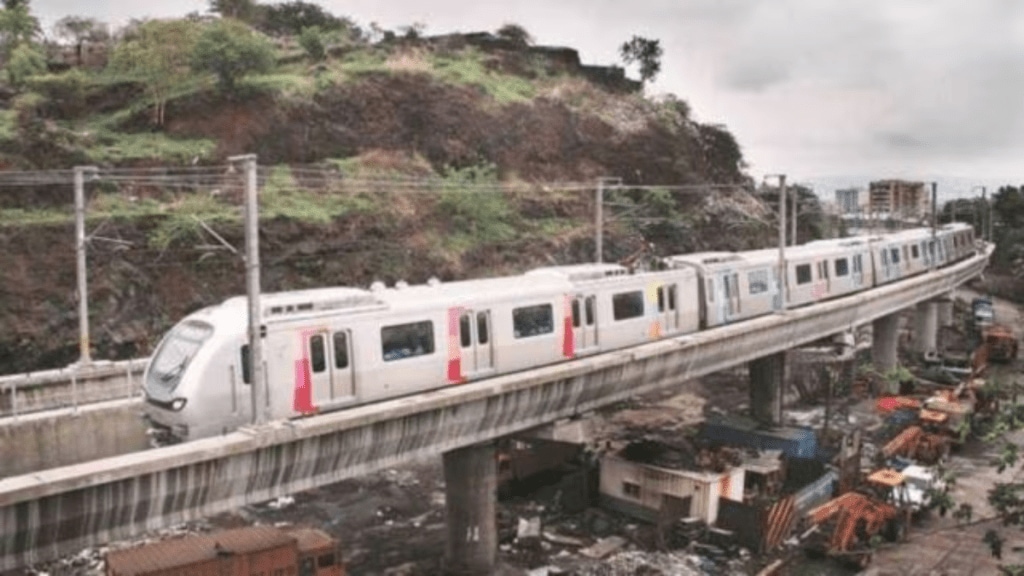The Mumbai Metropolitan Region Development Authority (MMRDA) is advancing with its ambitious plan to improve Metro connectivity across the city, with Metro Line 2B emerging as a crucial part of this vision. Set to connect D N Nagar in Andheri to Mandale in Mankhurd, Line 2B will be a key connector between the city’s eastern and western suburbs, linking high-density areas such as Andheri, Bandra, Chembur, and Mankhurd. Once completed, the line is expected to handle over 10 lakh daily passengers, making it one of the most important Metro corridors in Mumbai, as per Indian Express.
Project Overview and Progress
Spanning 23.6 kilometers, Metro Line 2B is progressing with 78% of its civil work completed. The project is on track for a phased completion, with the first phase slated for mid-2026, followed by the full completion by the end of 2027. The car shed for the line, located in Mandale, is already 97% complete, ensuring efficient operational readiness once the line opens, according to Indian Express.
The project features 20 elevated stations, including major hubs like ESIC Nagar, Prem Nagar, National College, Bandra Metro, Kurla East, Chembur, Shivaji Chowk, and Mankhurd. These stations will play a pivotal role in enhancing mobility for passengers traveling between Mumbai’s busiest areas.
Challenges and Solutions
Despite the significant progress, the project faces several challenges. The urban landscape of Mumbai poses constraints, including encroachments and the need for rehabilitation efforts. Coordinating with various agencies and managing traffic during construction has proven to be logistically complex. However, MMRDA has employed proactive planning strategies, including risk assessments and mitigation measures, to address these hurdles effectively.
MMRDA’s strong collaboration with agencies and its focus on ensuring seamless construction processes have allowed the project to stay on course despite these challenges.
Impact on Mumbai’s Transportation Landscape
Once operational, Metro Line 2B is expected to drastically reduce the city’s traffic congestion. The line will provide a sustainable, environmentally friendly alternative to road transport, which is vital given the city’s growing population and increasing vehicular emissions. The estimated cost of the project stands at Rs 10,986 crore, underlining the scale of this transformative initiative.
Official Statement
MMRDA Commissioner Sanjay Mukherjee emphasized the importance of this metro line for Mumbai’s future. “We are working to elevate Mumbai’s global standing as an economic hub, partnering with NITI Aayog and the World Economic Forum. Our goal is to develop Mumbai into a city of opportunity for every Indian. Metro lines like 2B not only enhance connectivity but also support our vision of a more sustainable, environmentally friendly transportation system that helps reduce congestion and improve the quality of life in the city,” he told Indian Express.
